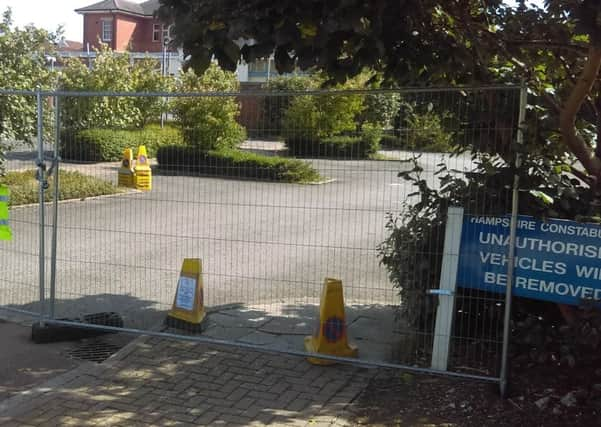Row breaks out between councillor and police commissioner over police car park


Southsea police station in Highland Road was closed down last year with its officers moving into Southsea fire station.
The intention for the site is for it to be sold and it is listed as under offer by property agents Lambert Smith Hampton.
Advertisement
Hide AdAdvertisement
Hide AdHowever, outrage has now been met at the decision to close off the station’s car park to the public by Councillor Luke Stubbs, deputy leader of the city council.
Cllr Stubbs said that the station’s large car park had acted as an overspill area for many years and that he had wrote to Michael Lane, Hampshire’s police and crime commissioner for his assurances that the site would remain open for the public until redevelopment occurred.
He said: ‘The parking situation around Highland Road is challenging, so for a public body to fence off a load of spaces.
‘I wrote to Mr Lane months ago before the building closed seeking an assurance that public access would remain but received no reply.
Advertisement
Hide AdAdvertisement
Hide Ad‘There has been no planning application to develop the site, so nothing is going to happen for months.
‘The public would be quite rightly banging on the council’s door if it had done this. The police should be help to the same standard.’
A spokeswoman for the Police and Crime Commissioner said: ‘Following the move of the police, we were happy to allow the community to use the car parks temporarily.
‘Part of the decommissioning work involves site investigation that requires the site to be closed off to the public in the interests of public health and safety; this means that we have had to secure the premises and close the car parks.’